![Beuger, Antoine : Two . Too (For Erwin-Josef Speckmann) [2 CDs] (Edition Wandelweiser Records) Beuger, Antoine : Two . Too (For Erwin-Josef Speckmann) [2 CDs] (Edition Wandelweiser Records)](https://www.teuthida.com/productImages/misc4/21823.jpg)
Jurg Frey on clarinet and Irene Kurka on soprano vocals perform Wandelweiser composer Antoine Beuger's extended composition "Two"; then the duo of Rhodri Davies on harp and Ko Ishikawa on sho are layered on the first recording, creating a refreshingly new take on the piece.
Out of Stock.
Quantity in Basket: None
Log In to use our Wish List
Shipping Weight: 3.00 units
EU & UK Customers:
Discogs.com can handle your VAT payments
So please order through Discogs
Sample The Album:
Rhodri Davies-harp
Ko Ishikawa-Sho
Irene Kurka-soprano vocals
Jurg Frey-clarinet
Click an artist name above to see in-stock items for that artist.
UPC: 4011778041634
Label: Edition Wandelweiser Records
Catalog ID: EWR 0903/04
Squidco Product Code: 21823
Format: 2 CDs
Condition: New
Released: 2009
Country: Germany
Packaging: Cardstock 4 page foldover
Recorded at Hann, March 29, 2009 (Kurka, Frey) and Tokyo, March 4, 2006 (Ishikawa, Davies)
"Two discs, the first an almost hour-long duet, "two", with Irene Kurka (soprano) and Jürg Frey (clarinet). The voice and clarinet alternate long, pure tones, Kurka very gradually singing the text: "as the full moon rises/the swan sings/in sleep/on the lake of the mind" (Kenneth Rexroth). The pair kind of seesaw back and forth, very calm and deliberate, reciting the words one at a time but repeating each many, many times, changing pitch with each advance in the poem. Beuger's concern for space is evident; it spools out slowly, like a thread in water. I find myself first rather entranced, then gradually bored, then fascinated again, going back and forth on an even slower pendulum than the performers. Ultimately, I found my attention wandering around the 40 minute mark.
But then there's "too". I had first listened to it without having read Richard's analysis of the piece (with the help of info from the composer). I would have realized after another listen or two, I think, that the underlying body of "too" was precisely the same recording just heard, but I never guessed that the "accompanying" duo of Rhodri Davies (Irish harp) and Ko Ishikawa (sho) had been lifted from a Hibari recording done in 2006 (one I don't own) and transplanted, the 20 minute track laid three times in succession over "two", just overlapping it on each end, tucking it in. Perhaps a closer examination of the recording dates may have hinted as much, but the two performances are so well integrated that the notion may never have crossed my mind. Technical details aside, the addition of Davies and Ishikawa absolutely open up the work. What was once intriguing if a bit arid now just blossoms. The Hibari recording also contained large amounts of space so there's never the slightest sense of overcrowding (indeed there remain, still, many moments when none of the four are creating sound). It may be due in substantial part to the affinity between the four voices, the harp providing a soft percussiveness that lovingly accents the smoother tones from voice, clarinet and mouth organ. There are times when the voice and sho are in almost perfect unison, others when the harp seems to be supplying just the right counterpoint. It's an inspired, not to say unusual choice, and Beuger aced it, an impressive decision. "too" becomes a rapturous experience, well more than the sum of its parts."-Brian Olewnick, Just Outside
Get additional information at Brian Olewnick's Just Outside
Artist Biographies
• Show Bio for Rhodri Davies "Rhodri Davies was born in 1971 in Aberystwyth, Wales and now lives in Gateshead in the northeast of England. He plays harp, electric harp, live-electronics and builds wind, water, ice and fire harp installations. He has released four solo albums: Trem, Over Shadows, Wound Response and An Air Swept Clean of All Distance. His regular groups include: a duo with John Butcher, Common Objects, HEN OGLEDD: Dawson - Davies, a trio with David Toop and Lee Patterson, Cranc, The Sealed Knot and a trio with John Tilbury and Michael Duch. In 2008 he collaborated with the visual artist Gustav Metzger on 'Self-cancellation', a large-scale audio-visual collaboration in London and Glasgow. New pieces for solo harp have been composed for him by: Eliane Radigue, Phill Niblock, Christian Wolff, Ben Patterson, Alison Knowles, Mieko Shiomi and Yasunao Tone. In 2012 he was the recipient of the Foundation for Contemporary Arts, Grants to Artists Award." ^ Hide Bio for Rhodri Davies • Show Bio for Ko Ishikawa "Ko Ishikawa is a Sho (Japanese bamboo mouth organ) player and is a member of the Gagaku ensemble "Reigakusha". He was born in Tokyo in 1963 and studied Sho and Gagaku music with masters Mayumi Miyata, Hideaki Bunno and Shiba Sukeyasu." ^ Hide Bio for Ko Ishikawa • Show Bio for Irene Kurka "Irene Kurka studied voice at the Musikhochschule Munich with Professor Reri Grist, at the Meadows School of the Arts (SMU,Dallas) with Professor Barbara Hill-Moore and at the University of British Columbia (Vancouver, Canada) with Professor Nancy Hermiston. The multifaceted soprano received many awards and scholarships. She sings recitals, opera and oratorio throughout Germany, Europe and the United States. Within the realm of contemporary music, she is in great demand; many composers (Eggert, Corbett, Weeks, Muntendorf, Frey, Kampe, Seither, Brass, Beuger, Pisaro etc.) wrote and dedicated new creative output for her to perform as well as record. She has premiered over 140 pieces. Since 2009 Irene Kurka has focussed intensively on the repertory for unacoompanied voice (Hildegard von Bingen, Nono, Berio, Cage, Bauckholt, Brass, Beuger, Stäbler, etc.) In 2012 she released a CD with music by Hildegard von Bingen and John Cage; this is a co-production with Bayerischer Rundfunk and Wandelweiser Records. 2013 follows with another CD co-production with Bayerischer Rundfunk and Wandelweiser Records; this CD considers the topic of "Prayer" and contains music by Brass, Beuger, Boon, Weeks, Corbett and Houben. After the acclaimed debut of her solo program "Prayer" at the Huddersfield Contemporary Music Festival in the UK, Irene Kurka has been invited to perform at hcmf//@ l'Auditori in Barcelona. Graham McKenzie, the festival director for both festivals in Huddersfield and Barcelona, was so impressed by the program that he is bring it to the Catalonian metropolis in October 2014. Ms. Kurka sings with the ensembles e-mex, notabu, musikFabrik, Wandelweiser Ensemble, Klangkonzepte, Schlagquartett Köln, chronophonie, Kölner Vokalsolisten, La Tenerezza, socell 21 and SOPRAKKORDEON. She has performed, among others, at the Tonhalle Düsseldorf, Kölner Philharmonie, Festival Mecklenburg-Vorpommern, Ungarischer Rundfunk Budapest, Huddersfield Contemporary Music Festival, hcmf//@L'auditori Barcelona, Theater Dortmund, A.DEvantgarde-Festival München, Acht Brücken Festival Köln, Festival Muziek Biennale Niederrhein, scene österreich in nrw, Theater Osnabrück, Globusklänge WM 2006, Ensemblia Mönchengladbach, Randspiele Berlin-Zepernick, MOMENTSMUSICAUX AARAU, Hydra Festival Boston, Oberstdorfer Musiksommer, Greifswalder Bachwoche, Fränkischer Sommer, Neuburger Kammeroper, Bayreuther Barock, Trier OPENING." ^ Hide Bio for Irene Kurka • Show Bio for Jurg Frey "Jürg Frey was born in 1953 in Aarau, Switzerland. Following his musical education at the Concervatoire de Musique de Genève, he turned to a career as a clarinetist, but his activities as composer soon came to the foreground. Frey developed his own language as a composer and sound artist with the creation of wide, quiet sound spaces. His work is marked by an elementary non-extravagence of sound, a sensibilty for the qualities of the material, and precision of compositional approach. His compositions sometimes bypass instrumentation and duration altogether and touch on aspects of sound art. He has worked with compositional series, as well as with language and text. Some of these activities appear in small editions or as artist's books as individual items and small editions (Edition Howeg, Zurich; weiss kunstbewegung, Berlin; complice, Berlin). His music and recordings are published by Edition Wandelweiser. Frey has been invited to workshops as visiting composer and for composer portraits at the Universität der Künste Berlin, the Universität Dortmund and several times at Northwestern University and CalArts. Some of the other places his work has developed are the concerts at the Kunstraum Düsseldorf, the Wandelweiser-in-Residence-Veranstaltungen in Vienna, the Ny music concerts in Boras (Sweden), the cooperation with Cologne pianist John McAlpine, the Bozzini Quartet (Montréal), QO-2 (Bruxelles), Die Maulwerker, incidental music, as well as the regular stays in Berlin (where during the last years many of his compositions were premiered). Frey is a member of the Wandelweiser Komponisten Ensemble which has presented concerts for more than 15 years in Europe, North America and Japan. Frey also organizes the concert series moments musicaux aarau as a forum for contemporary music." ^ Hide Bio for Jurg Frey
7/1/2025
Have a better biography or biography source? Please Contact Us so that we can update this biography.
7/1/2025
Have a better biography or biography source? Please Contact Us so that we can update this biography.
7/1/2025
Have a better biography or biography source? Please Contact Us so that we can update this biography.
7/1/2025
Have a better biography or biography source? Please Contact Us so that we can update this biography.
Track Listing:
CD 1
1. Two (For Erwin-Josef Speckmann) 58:26
CD 2
1. Too (For Erwin-Josef Speckmann) 62:07
Compositional Forms
Duo Recordings
Quartet Recordings
Organized Sound and Sample Based Music
Unusual Vocal Forms
New in Compositional Music
Search for other titles on the label:
Edition Wandelweiser Records.


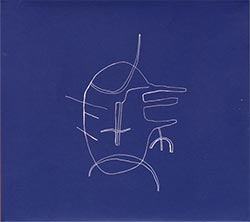
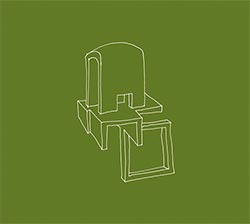
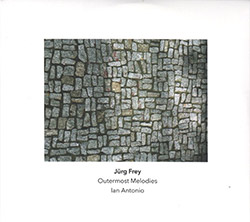
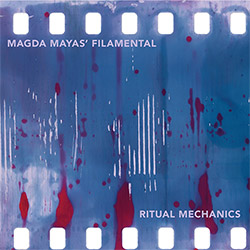




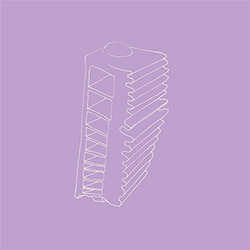
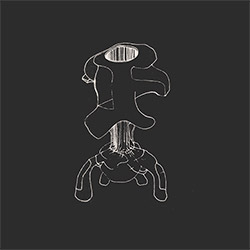

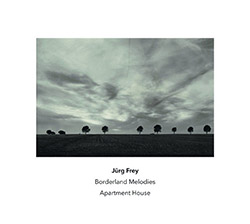
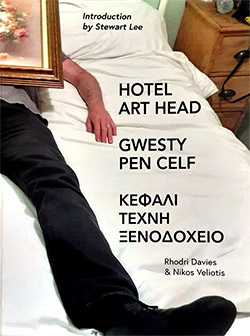
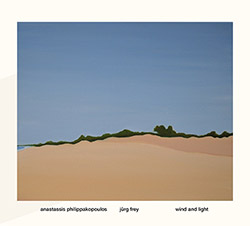

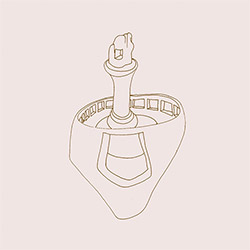
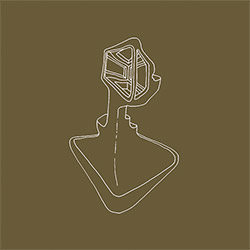
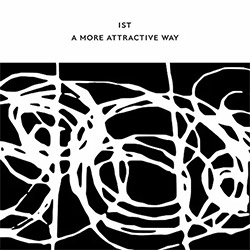
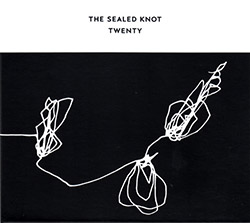
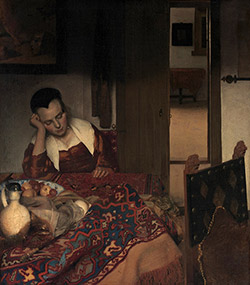




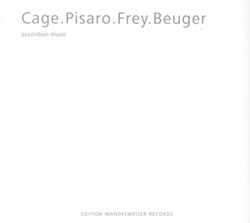
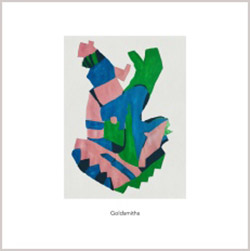










![Deupree, Jerome / Sylvie Courvoisier / Lester St. Louis / Joe Morris: Canyon [2 CDs]](https://www.teuthida.com/productImages/misc4/36404.jpg)


![Eternities: Rides Again [CASSETTE]](https://www.teuthida.com/productImages/misc4/36247.jpg)

![Lopez, Francisco: Untitled (2021-2022) [2 CDs]](https://www.teuthida.com/productImages/misc4/36438.jpg)




![Eventless Plot | Haarvol: The Subliminal Paths [CASSETTE + DOWNLOAD]](https://www.teuthida.com/productImages/misc4/36232.jpg)












![Eventless Plot | Francesco Covarino: Methexis [CASSETTE + DOWNLOAD]](https://www.teuthida.com/productImages/misc4/36231.jpg)



![Das B (Mazen Kerbaj / Mike Majkowski / Magda Mayas / Tony Buck): Love [VINYL]](https://www.teuthida.com/productImages/misc4/36329.jpg)



![Hemphill Stringtet, The: Plays the Music of Julius Hemphill [VINYL]](https://www.teuthida.com/productImages/misc4/36409.jpg)



![Halvorson, Mary Septet: Illusionary Sea [2 LPS]](https://www.teuthida.com/productImages/misc4/17952.jpg)






![Money : Money 2 [2 CDs]](https://www.teuthida.com/productImages/misc4/35894.jpg)




![Klinga, Erik: Elusive Shimmer [VINYL]](https://www.teuthida.com/productImages/misc4/36258.jpg)
![CHANGES TO blind (Phil Zampino): Volume 9 - I Wave on a Fine Vile Mist [CD + DOWNLOAD]](https://www.teuthida.com/productImages/misc4/36061.jpg)

![Wallmart / Rubbish: Asset Protection [split CD]](https://www.teuthida.com/productImages/misc4/35900.jpg)


![+Dog+: The Family Music Book Vol. 5 [2 CDs]](https://www.teuthida.com/productImages/misc4/35897.jpg)
![Kuvveti, Deli : Kuslar Soyledi [CASSETTE w/ DOWNLOAD]](https://www.teuthida.com/productImages/misc4/36107.jpg)

![Nakayama, Tetsuya: Edo Wan [CASSETTE w/ DOWNLOAD]](https://www.teuthida.com/productImages/misc4/36105.jpg)




![Yiyuan, Liang / Li Daiguo: Sonic Talismans [VINYL]](https://www.teuthida.com/productImages/misc4/35957.jpg)
![Brown, Dan / Dan Reynolds: Live At The Grange Hall [unauthorized][CASSETTE]](https://www.teuthida.com/productImages/misc4/36245.jpg)








![Palestine, Charlemagne / Seppe Gebruers: Beyondddddd The Notessssss [VINYL]](https://www.teuthida.com/productImages/misc4/36206.jpg)
![Palestine, Charlemagne / Seppe Gebruers: Beyondddddd The Notessssss [NEON GREEN VINYL]](https://www.teuthida.com/productImages/misc4/36207.jpg)

![Laubrock, Ingrid: Purposing The Air [2 CDs]](https://www.teuthida.com/productImages/misc4/35639.jpg)

![Yoko, Ono / The Great Learning Orchestra: Selected Recordings From Grapefruit [2 CDs]](https://www.teuthida.com/productImages/misc4/35841.jpg)









![Zorn, John / JACK Quartet: The Complete String Quartets [2 CDs]](https://www.teuthida.com/productImages/misc4/35609.jpg)

![Lonsdale, Eden: Dawnings [2 CDs]](https://www.teuthida.com/productImages/misc4/35480.jpg)



![Sorry For Laughing (G. Whitlow / M. Bates / Dave-Id / E. Ka-Spel): Rain Flowers [2 CDS]](https://www.teuthida.com/productImages/misc4/35985.jpg)

![Rolando, Tommaso / Andy Moor : Biscotti [CASSETTE w/ DOWNLOADS]](https://www.teuthida.com/productImages/misc4/36106.jpg)


![Electric Bird Noise / Derek Roddy: 8-10-22 [CD EP]](https://www.teuthida.com/productImages/misc4/35970.jpg)








![Elephant9 : Mythical River [VINYL]](https://www.teuthida.com/productImages/misc4/34624.jpg)



![Elephant9 with Terje Rypdal: Catching Fire [VINYL 2 LPs]](https://www.teuthida.com/productImages/misc4/35355.jpg)
![Deerlady (Obomsawin, Mali / Magdalena Abrego): Greatest Hits [VINYL]](https://www.teuthida.com/productImages/misc4/34876.jpg)







![Surplus 1980: Illusion of Consistency [CD]](https://www.teuthida.com/productImages/misc4/35069.jpg)
![Staiano, Moe: Away Towards the Light [VINYL + DOWNLOAD]](https://www.teuthida.com/productImages/misc4/35037.jpg)
![Coley, Byron: Dating Tips for Touring Bands [VINYL]](https://www.teuthida.com/productImages/misc4/17906.jpg)

![Lost Kisses: My Life is Sad & Funny [DVD]](https://www.teuthida.com/productImages/misc4/lostKissesDVD.jpg)